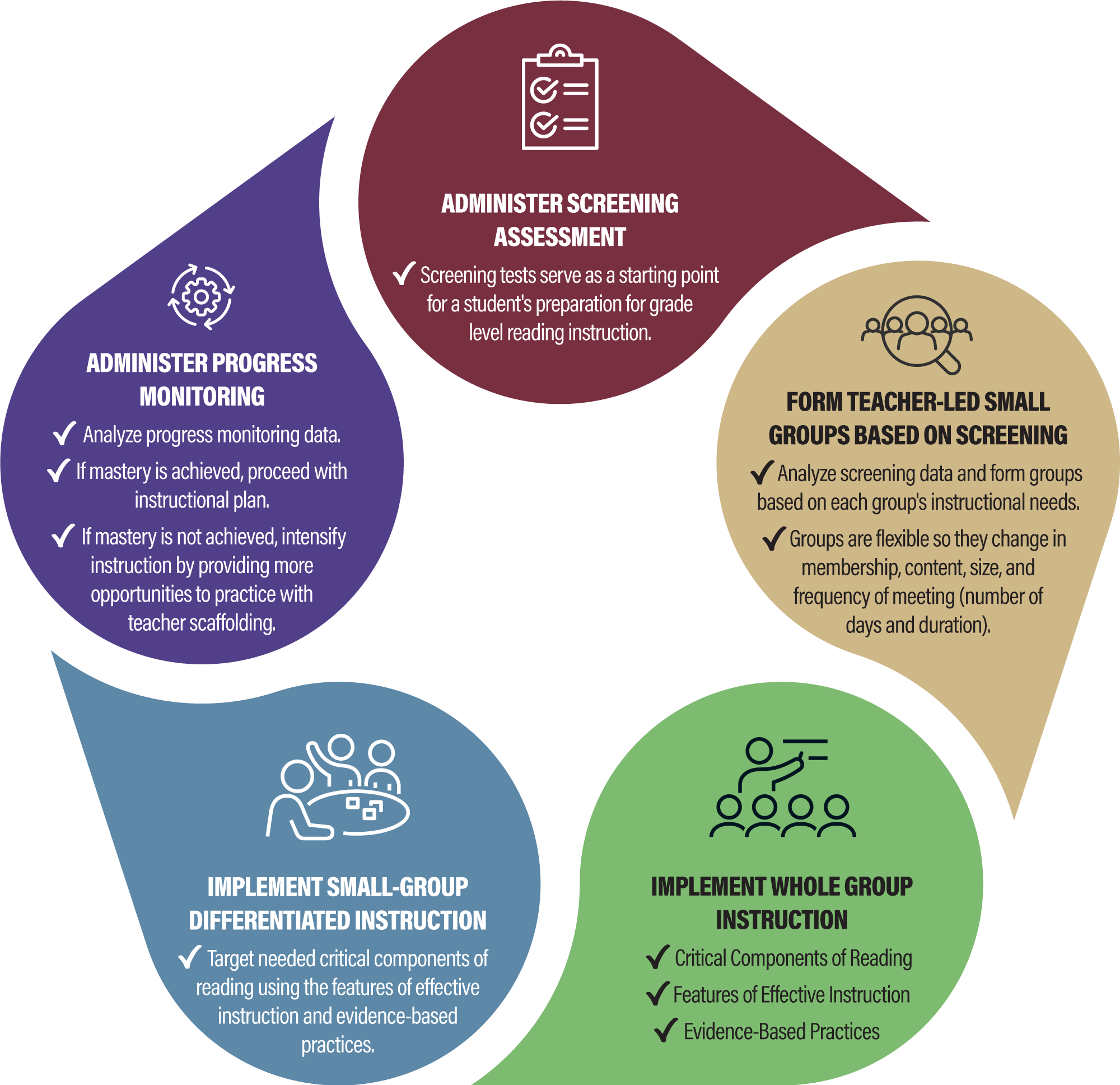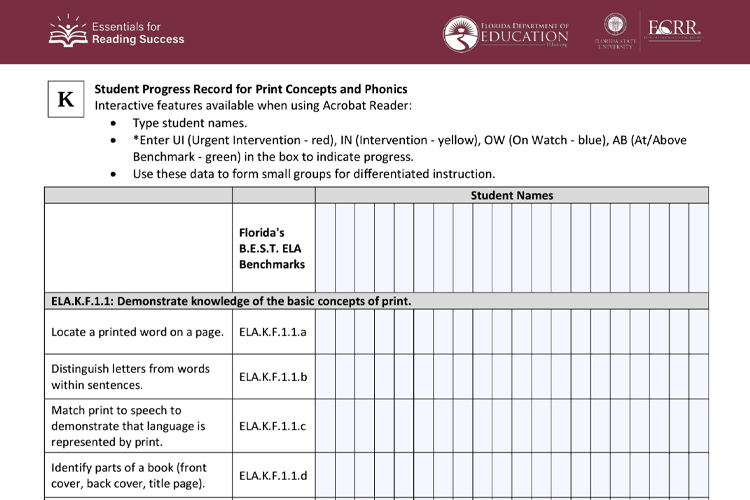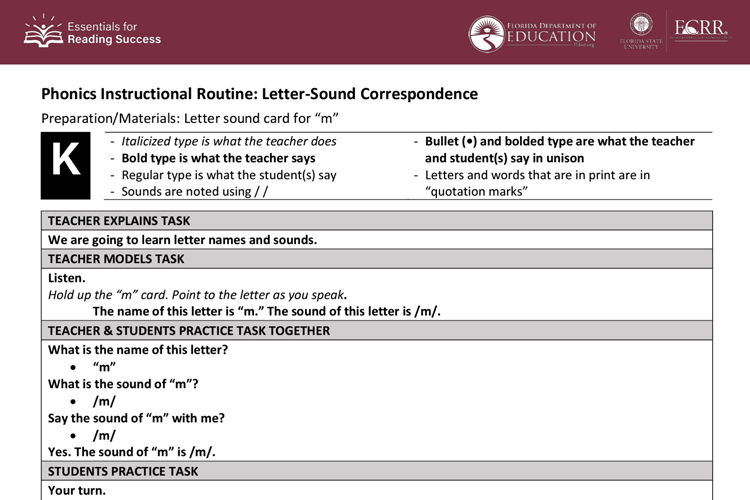Welcome to ESSENTIALS FOR READING SUCCESS! Here, teachers can find resources and support to deliver evidence-based reading instruction. FCRR invites you to use the resources below to teach the critical components of reading and improve reading outcomes for all learners.
The graphic depicts the process of implementing the content and information found in ESSENTIALS FOR READING SUCCESS. Click the graphic for a larger version.

Differentiated Instruction
An overview of matching instruction to meet the needs of individual learners.
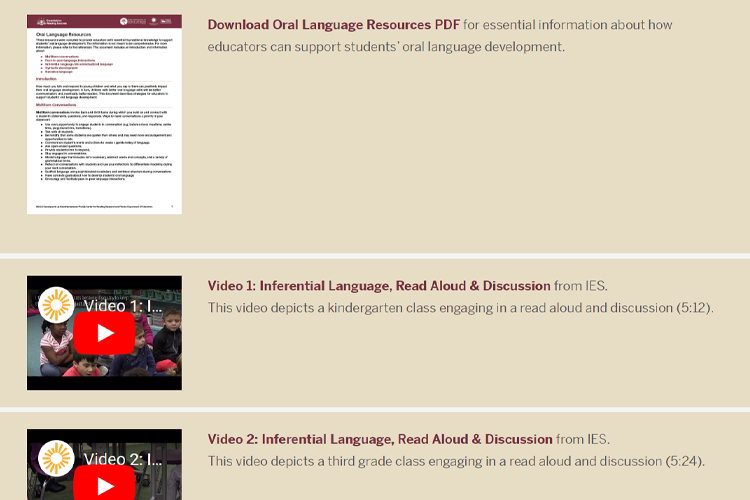
Components of Reading – Resources
What, why, and how to teach the components of reading including resources, classroom videos, and grade-specific Student Progress Records and Instructional Routines to support differentiate instruction.
Student Progress Records
Use these Student Progress Records to record individual student progress and form small groups for differentiated instruction. Some features in these documents will only function when opened in Adobe Acrobat 2020 or later versions.
Instructional Routines
Select and implement Instructional Routines aligned to reading component, grade level, and Florida’s B.E.S.T. Standards.
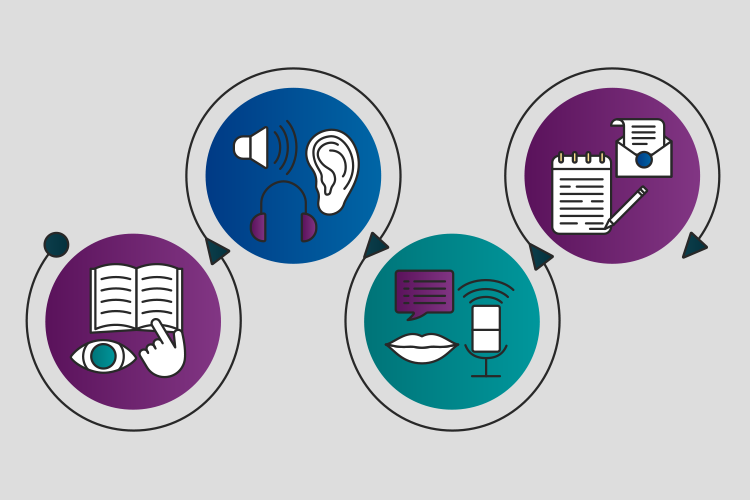
Science of Reading: An Introduction
Developed by the Florida Department of Education, this introductory course provides information about the science of reading, how the reading brain develops, the importance of word recognition and language comprehension, and practical ways to incorporate the principles of the science of reading into instruction.
Response to Intervention
An overview of Response to Intervention (RtI), which is part of a Multi-tiered System of Support (MTSS) framework.

